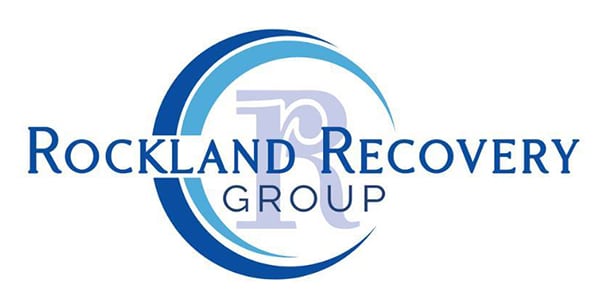Alcohol and drug withdrawal is a physically demanding process. Can You Die from Withdrawal Symptoms? While many people recognize that withdrawal is difficult, the potential for severe and dangerous symptoms often goes unrecognized. Individuals who choose to undergo detox from drugs and alcohol can experience symptoms that range from mild to severe. In rare cases, the severity of these symptoms can become life-threatening.
At Rockland Recovery Group, we recognize the importance of undergoing a supervised detox in a qualified addiction rehab center. If you or a loved one is ready to take this important step, we urge you to reach out to Rockland Recovery for help receiving appropriate care.
The Substance Abuse and Mental Health Services Administration (SAMHSA) website is also an incredibly valuable resource on addiction and recovery for individuals and their loved ones.
Understanding Withdrawal and How It Can Become Dangerous
Let’s begin with understanding what exactly happens during alcohol or drug withdrawal. When a person frequently uses addictive substances, it has a direct impact on their physical health. This includes a profound effect on the brain.
As tolerance builds, the brain and body change to adapt to the frequent presence of drugs or alcohol. While the exact way the brain changes can vary depending on the type of substance used, the brain and central nervous system are always involved.
During withdrawal, the body is basically sent into a state of shock where it needs to quickly adapt to the absence of drugs or alcohol. This can produce uncomfortable but milder symptoms such as fatigue, headaches, chills, nausea, and irritability. These types of symptoms can be effectively managed and don’t pose a threat to the individual’s health or life.
However, in some more severe cases, symptoms can escalate quickly beyond this point. Dangerous symptoms such as dehydration, seizures, and heart complications can occur. It’s these symptoms that pose the most serious risk, and need to be medically managed quickly to prevent serious and potentially fatal outcomes.
We want to stress that the risk of dying from withdrawal is low, with the most serious withdrawal symptoms occurring in only just a small number of people. However, the risk does still exist and stresses the importance of going through drug detox in a professional, supervised setting.
Can Alcohol Withdrawal Cause Death?
Alcohol addiction impacts the body in different ways than other types of drugs, such as opioids. Alcohol withdrawal specifically can become life-threatening due to a rare but present risk of delirium tremens.
Symptoms of delirium tremens include agitation, changes in mental function, tremors, confusion, fever, hallucinations, and seizures. These symptoms can put additional stress on the body and place the person in a position where the risk of injury is higher.
Additional symptoms such as profuse sweating and nausea can cause a person to become dehydrated and impact their electrolyte balance. This puts additional stress on the cardiac system, which is already working overtime during detox. This significantly increases the risk of severe cardiovascular side effects.
Opioid Withdrawal: Is It More or Less Dangerous?
While opioid addiction is a serious problem, especially when considering the rising number of overdoses, the detox process is considered less dangerous than what is experienced with alcohol detox. This isn’t to take away from the physically and mentally challenging process of opioid withdrawal. However, the risk of severe, life-threatening complications is less.
Like alcohol withdrawal, a person detoxing from opioid use may experience a wide range of symptoms. Early and mild symptoms of opioid withdrawal may include anxiety, agitation, insomnia, watery eyes or nose, general achiness, and increased sweating. More advanced symptoms of opioid withdrawal may include abdominal cramping, digestive upset and diarrhea, chills, goosebumps, nausea, and vomiting. The symptoms of opioid withdrawal generally subside within about thirty-six hours.
Alcohol Vs Opioid Withdrawal: Differences and Risks
Both alcohol and opioid withdrawal produce serious symptoms. However, the way these substances affect the body is different, meaning the symptoms and risks of withdrawal are different, also. Alcohol withdrawal can become a life-threatening situation due to the symptoms of delirium tremens. In comparison, opioid withdrawal presents with intense symptoms but they are rarely as extreme and dangerous.
The differences in alcohol and opioid withdrawal lead to different treatment approaches for each. Being admitted to an inpatient rehab center for addiction rehab is the most important thing a person can do to protect themselves from the severe symptoms of withdrawal, regardless of the substance use.
When To Seek Professional Help for Withdrawal
Anyone who has been using substances heavily or for an extended period of time should seek professional help for withdrawal. Even if a person has gone through detox in the past, it’s impossible to predict how it will go the next time. Going through detox in an addiction rehab center or medical setting ensures that the appropriate level of care is provided.
Supervised detox usually requires a stay of 24 to 36 hours, but some people choose to stay longer for inpatient addiction treatment. Inpatient rehab centers provide a safe, supervised environment for the withdrawal process. Seeking professional help ensures not only a person’s safety but also helps to establish a strong foundation for continued recovery.
Safe Treatment Options for Addiction Withdrawal in Massachusetts
Inpatient rehab centers are the ideal place to begin the journey to addiction recovery. Addiction withdrawal can be serious, and in some cases lead to life-threatening side effects, but for most people the risk of this is low. However, choosing supervised detox opens the doors to withdrawal treatment to help manage the symptoms and move you safely on to the next step.
At Rockland Recovery Group, we’re here to answer your questions and assist in providing the level of addiction detox and recovery care you need. Contact us today at 888-299-4833.




